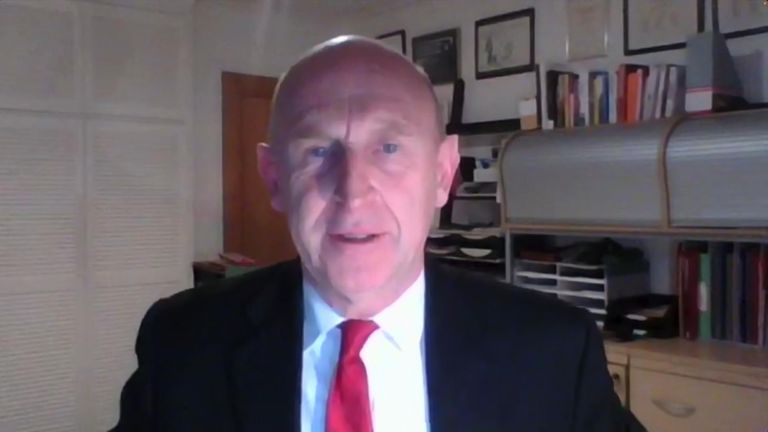
The military faces a cut of more than £2bn in its day-to-day budget in the year to March 2024 despite growing security threats, new calculations by Labour appear to show.
The potential drop in spending in real terms – when inflation is taken into account – was compared with the £33bn allocated to defence running costs – such as salaries, training and fuel – in the 12 months to March 2022, the opposition’s defence team said.
John Healey, the shadow defence secretary, said Rishi Sunak’s government had failed to commit to any new funding for defence in the autumn statement delivered last week.
“That means less money for forces pay, recruitment and training,” he told Sky News.
But a defence source signalled that Chancellor Jeremy Hunt had provided an assurance that the Ministry of Defence (MoD) would receive help to protect its budget from inflation – though the source did not offer a specific figure.
“The chancellor has committed to provide sufficient funding and exceptional budgetary flexibilities to meet defence’s external pressures in 2023-2024 so that core defence spending will be at least flat in real terms,” the defence source said.
“The chancellor and prime minister acknowledge defence spending will then need to rise and we will look at that in the Integrated Review refresh.”
The comments appear to indicate that the MoD is expecting to draw on reserves held by the Treasury to bolster its budget – otherwise it will shrink in real terms.
Using official figures provided by the House of Commons library, Labour studied a four-year settlement for defence, from 2021, agreed when Boris Johnson was prime minister as part of a sweeping Integrated Review of defence, security and foreign policy.
The data put the amount of the defence budget spent on resources – known as resource departmental expenditure limit (RDEL) – at £33.3bn in the year to March 2022, based on November inflation forecasts. This was signalled to drop to £32.1bn in the year to March 2023, fall again to £31.2bn in the year to March 2024 and once more to £31bn in the year to March 2025.
The Sunak government is reviewing Mr Johnson’s Integrated Review in the wake of Russia’s full-scale invasion of Ukraine.
Ben Wallace, the defence secretary, had said this refresh would be completed by December. But, in his autumn statement, Mr Hunt indicated that it might not be until next year.
“The prime minister and I both recognise the need to increase defence spending. But before we make that commitment it is necessary to revise and update the Integrated Review,” the chancellor told MPs last Thursday.
“I have asked for that vital work to be completed ahead of the next budget and today confirm we will continue to maintain the defence budget at least 2% of GDP to be consistent with our NATO commitment.”
Mr Sunak has declined to offer any new target on defence spending.
By contrast, Liz Truss, his short-lived predecessor, pledged to lift defence spending to 3% of national income by the end of the decade.










